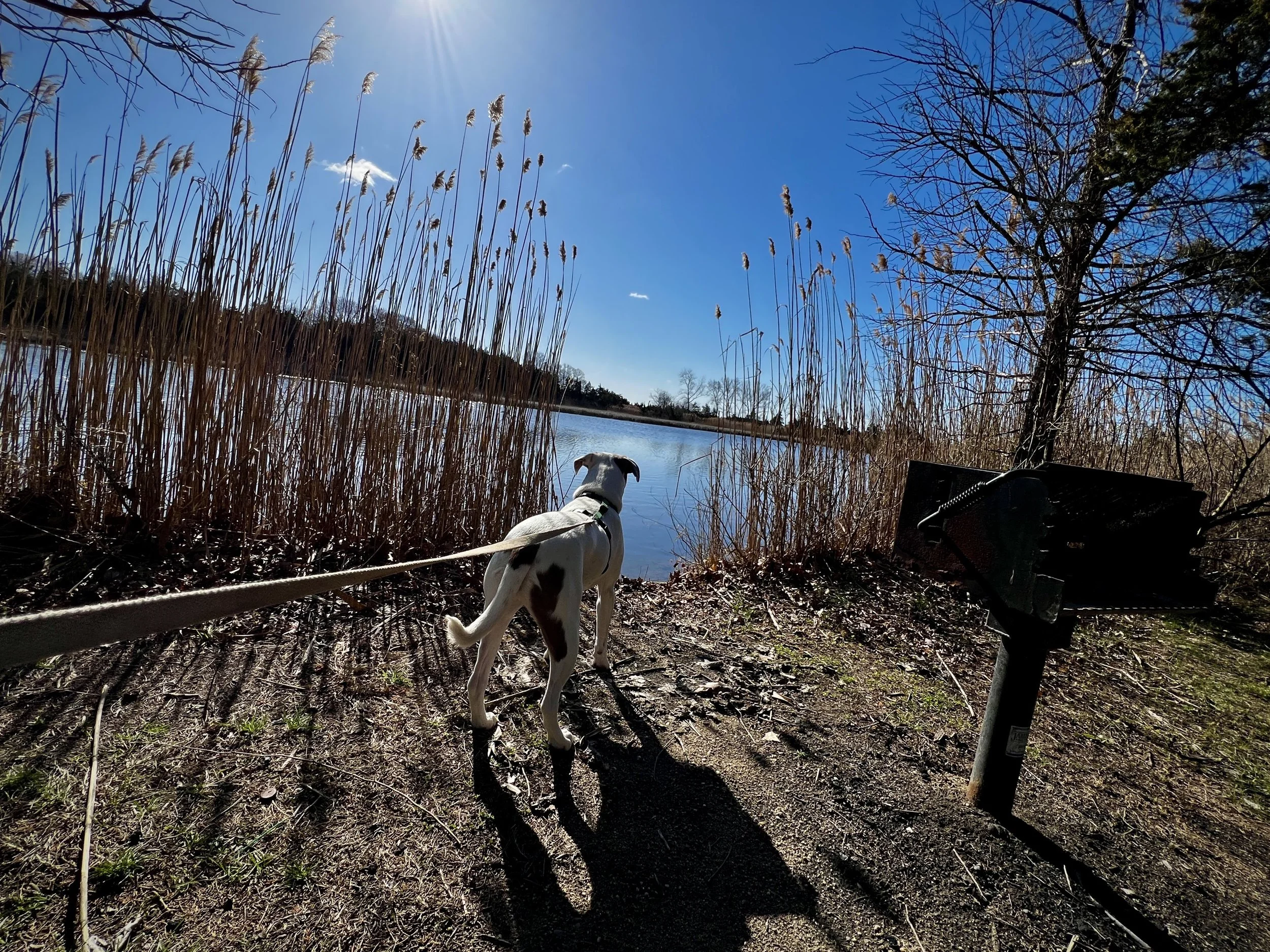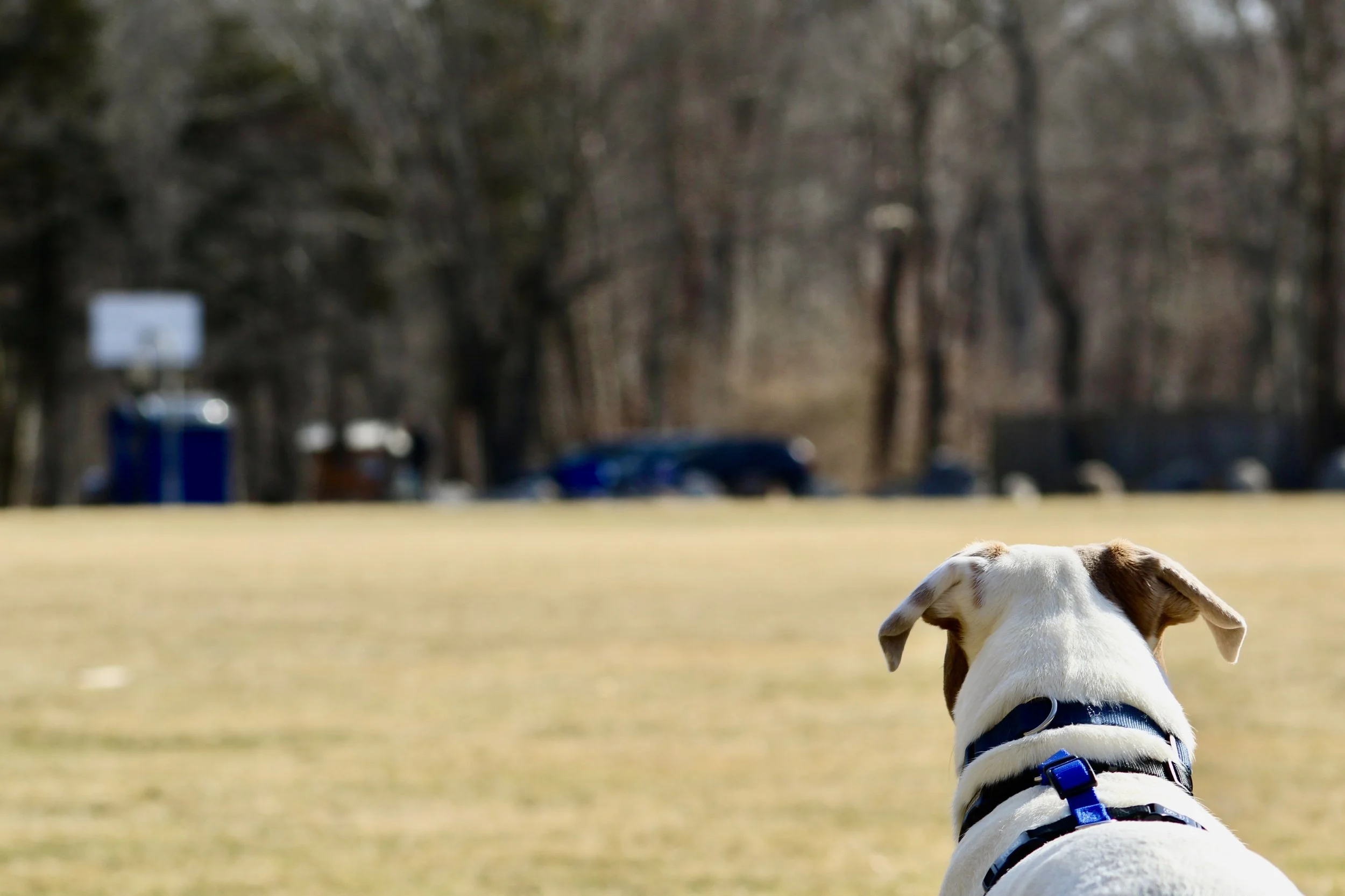The 3 Most Important Puppy Training Skills
Bringing home a new puppy can feel like a whirlwind of vet visits, supply shopping, and of course, puppy training. There’s so much to teach, but where do you begin? Sit, stay, come, their name? While these are all essential, there are a few skills that I recommend prioritizing as a certified professional dog trainer — and they may not be what you expect!
Lesson #1: Being Alone is a Positive Thing
Puppies are naturally social creatures, so it’s completely normal for your new puppy to want to stay close to you. Early on, they may stick to you like glue, whining or barking when separated. This is completely normal! For young animals, staying close to their mother is a survival instinct. Since your puppy has now left its mother and littermates, you’ve now taken on that protective role.
However, it’s unrealistic to be with your dog 24/7 for the rest of their life, so it’s crucial to gradually help your puppy adjust to being alone. Otherwise, your puppy could develop serious behavioral issues like separation anxiety, which can lead to barking, destructive behavior, or even attempts to escape through doors or windows. Trust me, no one—dog or human—wants to deal with that!
Murphy, the golden retriever puppy, is building confidence on his own in his playpen.
So, how do you teach your puppy that alone time can be a positive experience? By making it enjoyable and going at a pace they’re comfortable with.
Start by choosing a safe space for your puppy, such as a crate, playpen, or a puppy-proofed room. Turn this space into a doggie Disneyland with plenty of toys, chews, and enrichment activities. Begin by letting your puppy explore the space with the door open, allowing them to come and go freely. If you're using a room, spend some time inside the room with them before you gradually start shutting them inside their confinement area for very short periods (just a few seconds at first), with you still in view. As they grow more comfortable, slowly increase the length of time and start stepping out of sight. Eventually, you can work up to leaving them alone altogether.
If your puppy starts showing signs of stress—such as whining, barking, panting or pacing—let them out of confinement immediately and then proceed more slowly with training. The goal is to show them that being alone is safe and nothing to worry about—not a trigger for anxiety. Be patient with the process; rushing it can lead to the very problem you’re trying to avoid: separation anxiety (click here to learn more about separation anxiety).
Lesson #2: Patience is Key
Puppies are a lot like little toddlers—their brains are still developing, and they’re learning how to manage their impulses and practice patience. This means they’re often excited to grab that treat or toy out of your hand, they may jump up on the counters or dive their head into the food bin and they might get a little frustrated when they don’t get what they want immediately. At this stage in their lives, they’re naturally inquisitive and they’re figuring out what behaviors pay off for them. So, it’s the perfect time to gently teach them that patience leads to rewards.
Murphy learns to sit calmly while food is prepared.
Teaching your puppy that waiting for something they really want is an important lesson that will help them grow into a calm, well-mannered dog. With positive reinforcement, you can show them that waiting leads to great things and prevent or reduce unwanted behaviors like frustration, demand barking, or jumping. With patience and consistency, your puppy will learn that good things come to those who wait, setting them up for a lifetime of positive behavior.
Teaching patience doesn’t have to be difficult, either. Rather than focusing on what your puppy is doing wrong, celebrate what they’re doing right. If your puppy lies quietly next to you while you eat dinner instead of barking for attention, reward them with a treat! If they wait calmly at the door while you unlock it, instead of jumping, give them a treat! Every time they make the right choice, even if it’s just for a moment, reward them with a treat. These small wins add up, helping your puppy develop impulse control, patience, and good manners as they grow.
Lesson #3: The World Is a Safe Place
You’ve probably heard the term “puppy socialization.” But contrary to popular belief, socialization isn’t about introducing your puppy to lots of different people and dogs. Sure, those interactions are part of it, but they’re just a small piece of the puzzle. The true goal of socialization is to teach your puppy that the world around them is a safe place, not something to fear.
Imagine all the new things your puppy encounters — loud noises, unfamiliar people and animals, novel smells, different surfaces and substrates, and so much more. To your puppy, everyday things we often take for granted can feel overwhelming and even scary. For example, a loud truck might seem like a giant, terrifying monster, and a busy street could feel like chaos and signal danger. It’s a lot to process for such a little one! Your puppy needs your help to make sense of such a big, unfamiliar world.
To best help them, gradually expose your puppy to a variety of sights, sounds, and environments, being careful that you allow them to explore at their own pace. Let your puppy take the lead (as long as it’s safe), and follow their cues. Don’t rush them or push them into situations they’re not ready for. If your puppy shows fear or hesitation, calmly move them away from whatever is making them nervous. Following this structured and careful approach to socialization will help your puppy build confidence and prevent behavior problems.
Makai explores a park and gets to watch the wildlife.
Other Important Skills
Of course, things like teaching their name, coming when called, and leash walking are important too. However, these obedience skills can be taught at any age. The earlier you focus on these three important life lessons, the smoother your puppy’s transition into adulthood will be, and the fewer behavior issues you'll face down the line.
If you’re struggling with puppy training, don’t hesitate to reach out! I’m here to help guide you and your puppy through this exciting journey. Call me at 860-460-6123 or book a free phone consult so we can chat about your puppy and your training needs.
With wags and aloha,
Cori Tufano- CPDT-KA, FDM, CSAT, FFCP
Makai watching the worls go by, which is what puppy socialization is all about!




